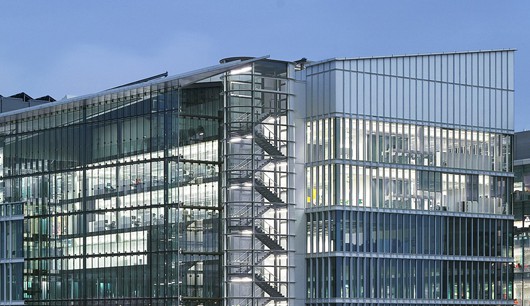
AstraZeneca’s lung cancer therapy Tagrisso has become the fourth drug to be made available to patients in the UK before approval under an early access scheme.
The Medicines and Healthcare products Regulatory Authority (MHRA) has said that adults with non-small cell lung cancer (NSCLC) whose tumours test positive for an epidermal growth factor receptor (EGFR) mutation called T790M – and who have failed first-line EGFR inhibitor therapy – will be eligible for treatment with the drug.
Tagrisso (omisertinib; formerly AZD9291) has been approved for marketing in the US but has yet to be cleared by the EMA. Under the UK’s Early Access to Medicines Scheme (EAMS) it will be provided free of charge to eligible patients until its regulatory review is completed.
The drug is a third-generation EGFR inhibitor, designed to overcome resistance to older drugs in the class such as Roche/Astellas’ Tarceva (erlotinib), AZ’s Iressa (gefitinib) and Boehringer Ingelheim’s Giotrif (afatinib).
The MHRA said that other EGFR inhibitors have little activity in T790-positive NSCLC and patients with these tumours have very few treatment options. In two clinical trials, 61% of patients with this form of NSCLC saw their tumours shrink after being treated with Tagrisso, while in others the cancer stopped growing.
“The MHRA has considered the benefits of osimertinib in this difficult to treat condition and concluded that the benefits are greater than the risks,” said the agency in its EAMS Public Assessment Report.
It notes that an ongoing larger clinical study called AURA3 is designed to confirm the results seen in the two smaller studies and to provide comparative data against chemotherapy, the current standard of care in these patients.
Around 20% of patients with NSCLC have tumours that are resistant to first-generation EGFR inhibitors from the outset, and the benefits of treatment tend to be short-lived even in responders. Nearly all tumours eventually develop resistance within 10 to 12 months, even when switched to second generation drug Giotrif.
To date, the other medicines approved for early access under the scheme are Bristol-Myers Squibb’s Opdivo (nivolumab) and MSD’s Keytruda (pembrolizumab) – both PD-1 inhibitors – and Novartis’ new heart failure therapy Entresto (sacubitril and valsartan).




